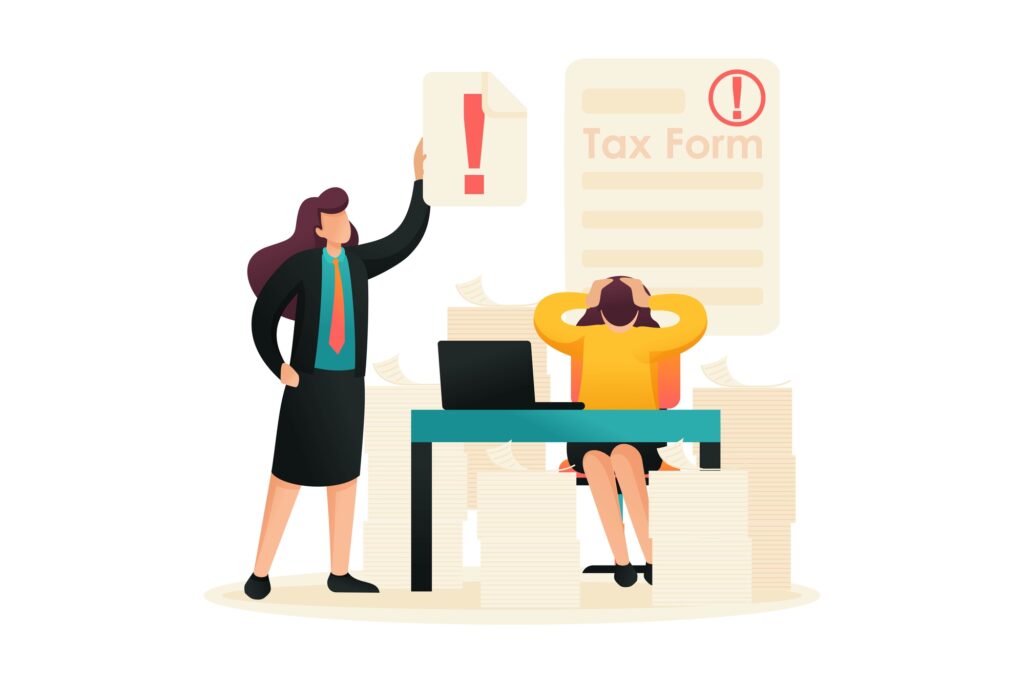 Several years ago, I was at a restaurant and a party of four at the next table were discussing IRA rollovers. I couldn’t help but overhear their conversation…most of which was correct, but some was not. This incident serves as a reminder about who not to take tax advice from.
Several years ago, I was at a restaurant and a party of four at the next table were discussing IRA rollovers. I couldn’t help but overhear their conversation…most of which was correct, but some was not. This incident serves as a reminder about who not to take tax advice from.
Social media
There may be good information on some social media sites (for example, we post information on Facebook, etc.), but there’s a lot of incorrect or fraudulent information floating around. The IRS says to beware of tax advice on social media. What can go wrong?
Bad tax advice on social media can mislead you about refund eligibility. Influencers may convince you to lie on tax forms or suggest the IRS is keeping a tax credit secret from you. Social media posts may put you in touch with scammers. For example, there have been misleading claims about a self-employment tax credit that doesn’t exist, and bogus claims on returns by taxpayers can lead to IRS audits.
ChatGPT
I use this site frequently, but on several occasions have been given incorrect information. It responded with 2024 numbers when I was searching for 2025 numbers. Or, on more than one occasion, it just provided misinformation.
When you ask a question on ChatGPT, frame it so that you receive the source for the answer. Then you can do further research through the source. If you don’t get a source from ChatGPT, follow Ronald Reagan’s advice to “trust but verify.”
IRS phone assistance
If you have questions, you may direct them to the IRS. There is a special telephone number to call for questions about your business return: (800) 829-4933. During last year’s tax season, the IRS answered about 9 million questions by phone. We don’t know how many of these answers were accurate.
Do not simply rely on statements made to you by an IRS representative over the telephone. If you want to use this IRS advice with impunity, be sure to get the IRS employee’s ID number. Even so, keep in mind that the IRS is not bound by oral advice; it is only bound by written advice it may give you.
Ghost preparers
By definition, ghost preparers—preparers who don’t sign returns and remain invisible—are untrustworthy. According to the IRS, ghost preparers encourage taxpayers to take advantage of credits and deductions they don’t qualify for. The consequences of following the advice of a ghost preparer can be identity theft, theft of cash and a tax refund, but, perhaps worst of all, an invitation to an IRS audit.
Check the IRS list of Dirty Dozen Tax Scams for 2025 to see some of the erroneous advice given to taxpayers. For example, unscrupulous preparers may induce a business to make a false fuel tax credit claim. As the IRS says, “get more information.”
Family, friends, and neighbors
Circling back to that overheard conversation, it’s probably wise to not rely on advice from family, friends, and neighbors, unless they happen to be tax professionals. They may be well meaning, but they may not be well informed.
Final thought
Tax advice can be complicated because the tax law is complicated. Pose a question to several professionals and you may receive differing responses. But good tax professionals won’t give you answers that are fraudulent or completely without some basis. If you have concerns about tax advice you receive, then like a diagnosis you receive from a doctor, you can always seek a second opinion.
For more resources concerning small business tax laws, see this list of blogs.


